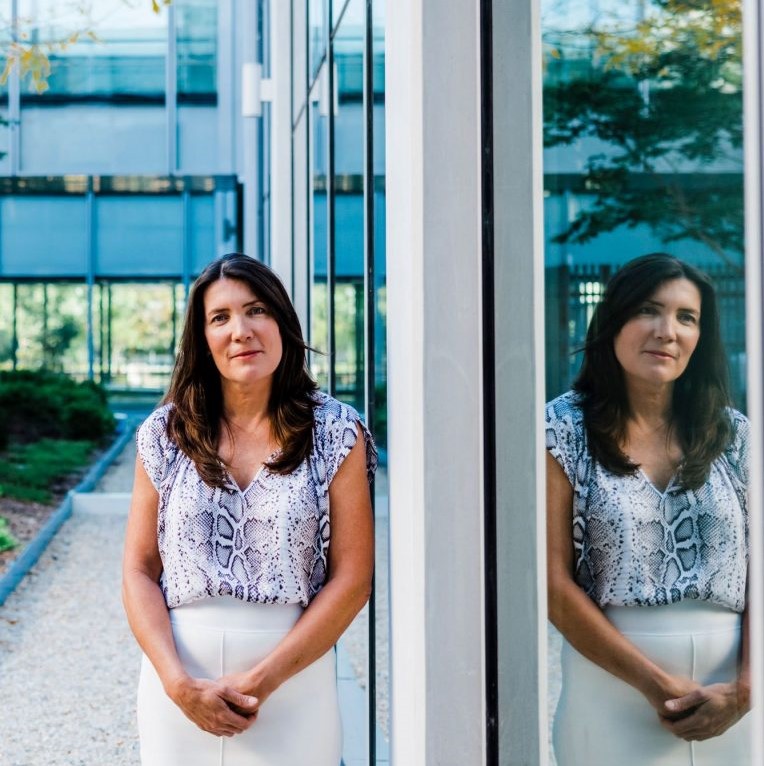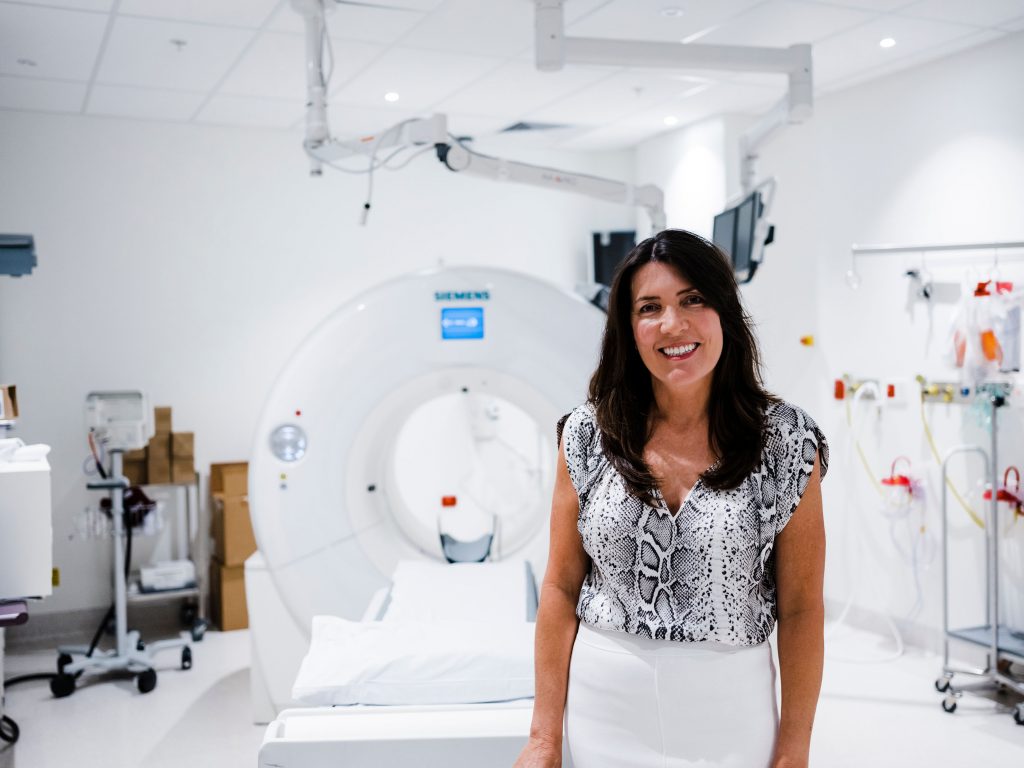Annette's Story
“For the rest of my career, lung cancer will remain the biggest cancer killer of Australians. It kills more women than breast cancer.” Dr. Anette McWilliams, Medical Oncologist and Cancer Clinical Trial Lead at Fiona Stanley Hospital

“For the rest of my career, lung cancer will remain the biggest cancer killer of Australians. It kills more women than breast cancer.” Dr. Anette McWilliams, Medical Oncologist and Cancer Clinical Trial Lead at Fiona Stanley Hospital

“I remember one of my colleagues said ‘Oh well Canada, that will be fun. But lung cancer research? That’s a bit of a waste of time.’’
That’s just one of many anecdotes Annette has on hand to illustrate the stigma associated with the disease, even though the facts are that 20 per cent of people (and rising) diagnosed with lung cancer in Australia have never smoked and 40 per cent have long since quit.
“There’s a lot of nihilism and stigma about lung cancer, and Australia is one of the worst countries in the world for that. It’s both from other people — from the community thinking ‘Oh they deserve it because they’ve been a smoker’ — and also from patients themselves. There’s also stigma from clinicians.”
While Annette is quick to point out that these attitudes are born of Australia’s highly successful quit campaign, she says they are unfair and destructive.
They also make it harder for someone in her field to attract attention and research support.
But Annette pushes on, buoyed by the results of research that proves CT scans can detect lung cancer early enough to save lives. It is a huge leap forward from research in the 70 and 80s that used x rays.
“They found more lung cancer with chest x-rays but it didn’t save lives,” she says.
It was during her research with Dr Lam that Annette became intimately involved with screening research.
“And we just kept finding all these cancers, and we found early cancers. I remember Stephen and I saying to each other, we think there’s something in this.” Because the sad reality is that most lung cancers are not discovered until late in the disease, when chances of survival are diminished.
So now she is putting together a model for targeted screening that the Australian Government might just find compelling enough — both from a financial and a community health perspective.
“What we’re doing is looking at how do we really choose the people that need a CT screen, so not just on age and smoking history … we’re working on using a prediction model.”
It would be done over the phone or online using “a whole range of factors” based on the internationally recognised PLCO predictive model such as family history, smoking history, age, BMI. “So rather than screen everyone over 50 who has ever smoked, (we identify) who really needs it — because not every person who smokes gets lung cancer.”

The goal, she says, is “to be more efficient, streamlined and cost effective. You’ve really got to use public money wisely.”
Part of Annette’s work is also in validating special software that can pick up nodules during CT scans and analyse them — yet another potentially life-saving predictive measure.
An active outdoorsy woman who threw herself into skiing, hiking and mountain biking, Annette ended up spending more than a decade in Canada — the “confirmed spinster” met her husband and they had their two daughters there — before returning to Australia in 2013.
“I thought it would be wonderful to come back and take what I’ve learnt and try to do something to help the Australian community, which trained me,” she says.
Annette was the first person in her family to go to university, studying medicine at UWA. “Medicine was not something that was even on the cards but my natural interest was science and human biology — I was always interested in how the body worked. I think my teachers encouraged me to do medicine,” she says with a laugh. “I didn’t know any doctors except my GP!”
She worked at Royal Perth hospital before travelling to London to work in the early 1990’s— “a bit of an eye opener”. Back in Perth, Annette was encouraged to train as a physician by senior male colleagues hoping to see more diversity in the field. During those three years, it “just naturally” came out her interests lay in respiratory medicine.
“I got interested in lung cancer working as a young lung doctor,” she says. “Most people had advanced disease, which is still the case today.” The apathy around lung cancer meant there was plenty of work to be done. “When you’re thinking, as a young doctor, where is your career going to go and what do you want to do, because there’s a lot of competition for consultant jobs, you think: ‘Well, where is no one doing new work?’ And lung cancer was one of them — there wasn’t a lot of people interested in it and there wasn’t a lot of new ideas at that time.”
Annette insists her work remains as vital as ever because the lung cancer epidemic is still increasing. “The numbers we see every year are still going up. This is not a problem that’s going away,” she says. “Australia has done really well on focusing on primary prevention … but it’s the legacy. And the cancer we’re seeing today — this is what people forget — is the tobacco behaviour of 30 years ago. And we’ve got an ageing population.”
On top of that, and even more alarmingly, the incidence of lung cancer in “never smokers” is on the rise.
Donate today to support research